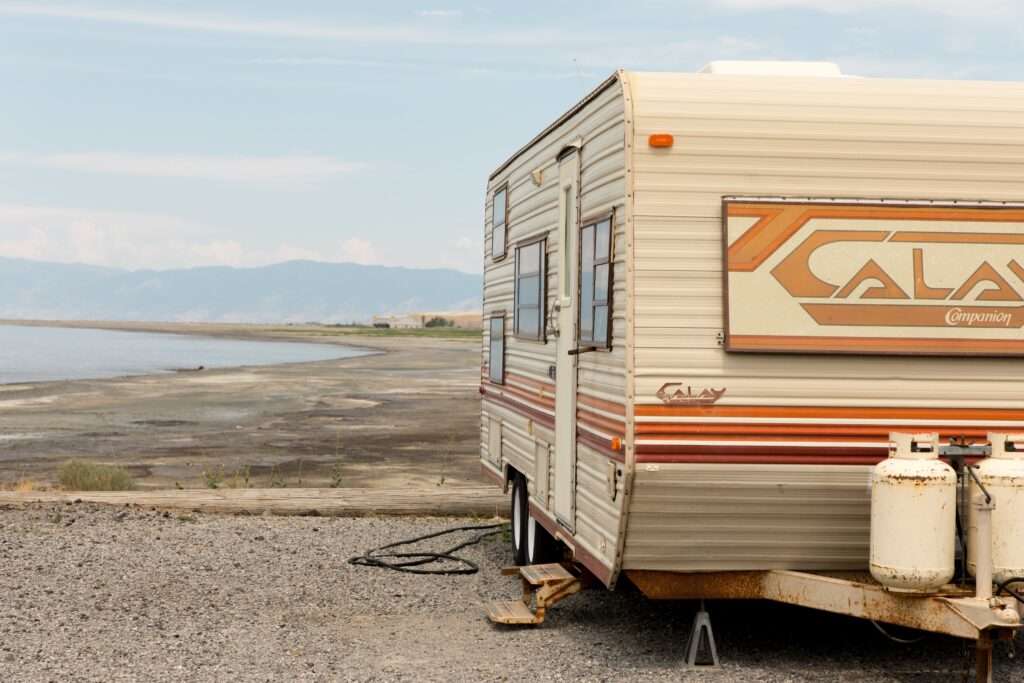
Brushing Up On RV Terminology
Most hobbies or lifestyles have their own separate sub-culture, and RV life is no exception. Over time, a long and detailed list of unique vocabulary has developed in the world of RVs. Whether you plan to hit the road full time or just every once in a while, make sure you brush up on your RV terminology.
RV Terms You Need to Know
Keep in mind that the following list of RV terminology is not exhaustive. However, seasoned RVers tend to throw around slang terms that might be foreign to new travelers. If you travel in an RV, make sure you are familiar with the definitions of the following terms.
-
Dry Camping
Dry camping refers to parking your RV somewhere without hookups. In other words, you’re just winging it without extra water or power. That said, you can still utilize what resources are available in your water tanks and generator.
-
Boondocking
Boondocking is a form of dry camping but usually used in a “rougher” context. For example, a traveler may dry camp in a Walmart parking lot but boondock in the middle of a forest. It’s the same thing (camping with no hookups), but boondocking typically refers to wilderness camping.
-
Toad
“Toad” is slang for “towed” and simply refers to the vehicle being towed behind your RV.
-
Fiver
If you ever hear a traveler use the word “fiver,” they are probably referring to their fifth-wheel camper.
-
FHU
The letters “FHU” stand for “full hook-up” and refer to an RV campsite with full hookups available. Water, sewage, electricity, etc. are available at an FHU.
-
Gray Water/Black Water
This RV terminology is not really unique to RV culture but is used often. Gray water refers to the run-off from sinks and showers, while black water is the wastewater from your flushed toilet. The reason they are separated is because in some states, you can legally dispose of gray water on the ground. Black water has to be specially removed.
-
Slideout
A slideout is a feature that allows a motorhome to “expand” when parked, creating more living space.
-
Puller
A puller is a type of RV that has a motor located in the front of the vehicle.
-
Pusher
Likewise, a pusher is powered by a motor located in the rear of the vehicle.
-
Chassis
The chassis is essentially the RV’s frame. The style of the motorhome largely depends on the style of the chassis. For example, some smaller RVs are built on a truck chassis, and even smaller campers are built on a van chassis.
-
Cockpit
The “cockpit” is slang for the driver’s area up at the front of the RV. It includes both the driver’s seat and the passenger’s seat.
-
Dump Station
Remember that gray water and black water? The dump station is where travelers go to legally dispose of their wastewater (at least when the law doesn’t allow gray water to be dumped in nature).
-
Full-Timer
A full-timer is exactly what it sounds like and refers to a traveler who lives in their RV full-time.
-
Weekender
On the other hand, a weekender travels in their RV as more of a hobby. Weekend trips or periodic vacations take the place of full-time RV living.
-
Underbelly
The underbelly of the RV often contains extra storage space, water tanks, etc.
-
Tow Weight
The tow weight is pretty self-explanatory and indicates the maximum weight that an RV can tow.
What is the Mission of RV Awnings?
RV Awnings specializes in making awning fabric of the highest standard and offers a variety of options. If you have any further questions or would like to order replacement fabric for your awning, call us today.
